Restricting Freedom of Speech or Violation of The Law: How Does Radio Azattyq Threaten Kazakhstan's National Security?
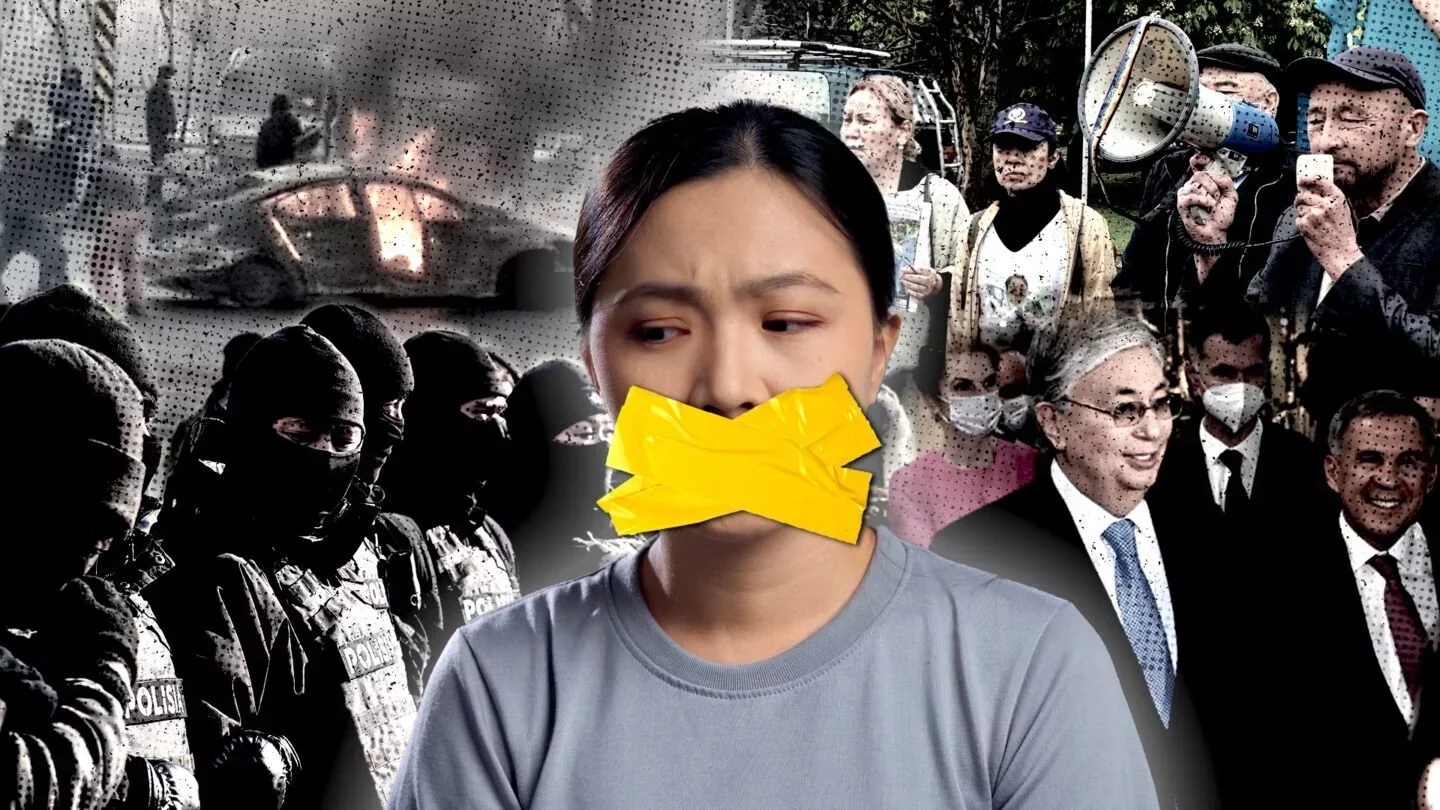
In Kazakhstan, proposals have been put forward to ban the work of foreign media and their journalists who have not received accreditation. The Ministry of Foreign Affairs of the Republic of Kazakhstan has not issued accreditation to 36 Radio Azattyq correspondents. The head of Kazakhstan's Azattyq edition spoke with Orda.kz about the reasons for the refusal, amendments to the law "On Mass Media," and the threat to national security.
Why Was There No Accreditation?
In January of this year, the Kazakh Foreign Ministry replied to Azattyq that it would not grant accreditation to 36 of its correspondents. According to the Kazakh Azattyq's head, Kasym Amanzhol, the Ministry of Foreign Affairs has provided two reasons.
Some journalists of the publication worked without accreditation. Yet, this reason does not stand up to criticism. After all, the editorial board submitted documents repeatedly and on time. According to the regulations, the Ministry of Foreign Affairs must make a decision on granting or refusing to grant accreditation to a reporter of a foreign media within two months after receiving an application. But the representatives of the Ministry of Foreign Affairs did not follow their own regulations and now they are pinning the result of their mistake on us,
says Amanzhol.
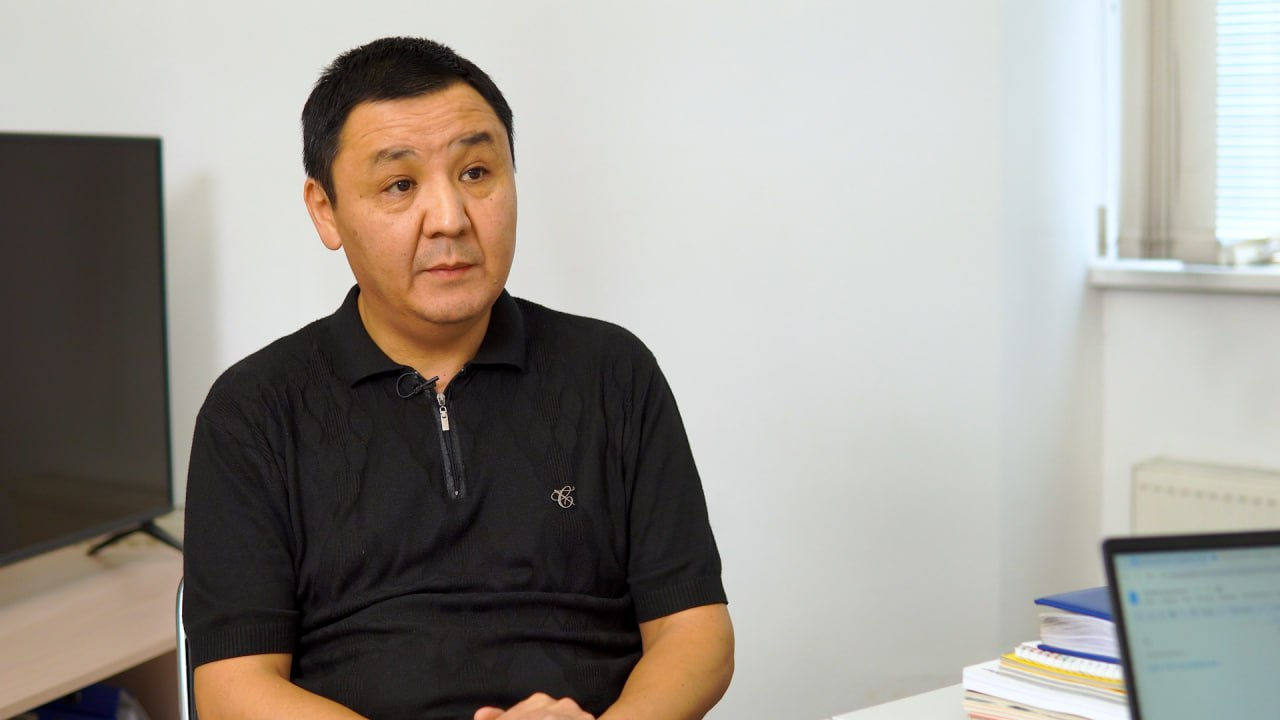
The second reason - the case that Azattyq lost in the fall of 2023. Shymkent resident Alisher Turabayev brought the media to court, considering that the editorial board "spread false information." The man considered this information to be the word choice of the "Russian-led" Collective Security Treaty Organization (CSTO). The court in Almaty fined Azattyq 103.5 thousand tenge.
The Ministry of Foreign Affairs reported that the publication violates the laws of Kazakhstan. But did all 36 journalists work on the same material? Moreover, within the framework of the court, Radio Azattyq was prosecuted as a legal entity, and 36 journalists applied for accreditation as individuals. There is no reason to blame an individual for the responsibility of a legal entity. Azattyq intends to challenge the decision in court,
says Amanzhol.
National Security Threat?
The aforementioned refusal was issued the day before Majilis deputies' proposal to amend the law "On Mass Media." If the amendments are adopted, the law will give the Ministry of Foreign Affairs the right to refuse accreditation to foreign media and their journalists "in case of a threat to the national security of Kazakhstan."
Media experts have repeatedly criticized the deputies' proposals to tighten the law. At an online briefing with representatives of the media community, Gulmira Birzhanova, a lawyer at the Legal Media Center Foundation, said that such a broad interpretation could lead to a misinterpretation of the norm and a restrictive approach.
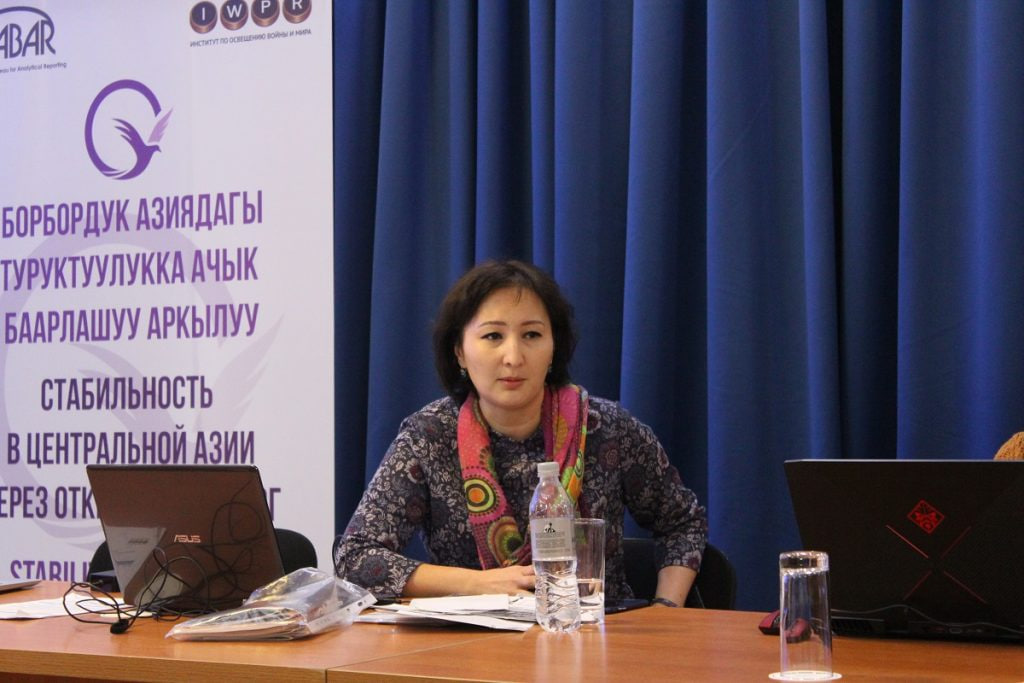
Kassym Amanzhol believes that the non-issuance of accreditation and the proposal to tighten the law are aimed at restricting the work of foreign media.
These two events are a manifestation of consistent pressure on the media. We cannot confirm whether the decision was made not to issue accreditation to journalists of the publication against the background of the proposals of the deputies. As well as whether the Foreign Ministry considered that the publication threatens national security. The amendments have not been adopted yet. Azattyq works for the public good and freedom of speech, and there is no issue of any threat.
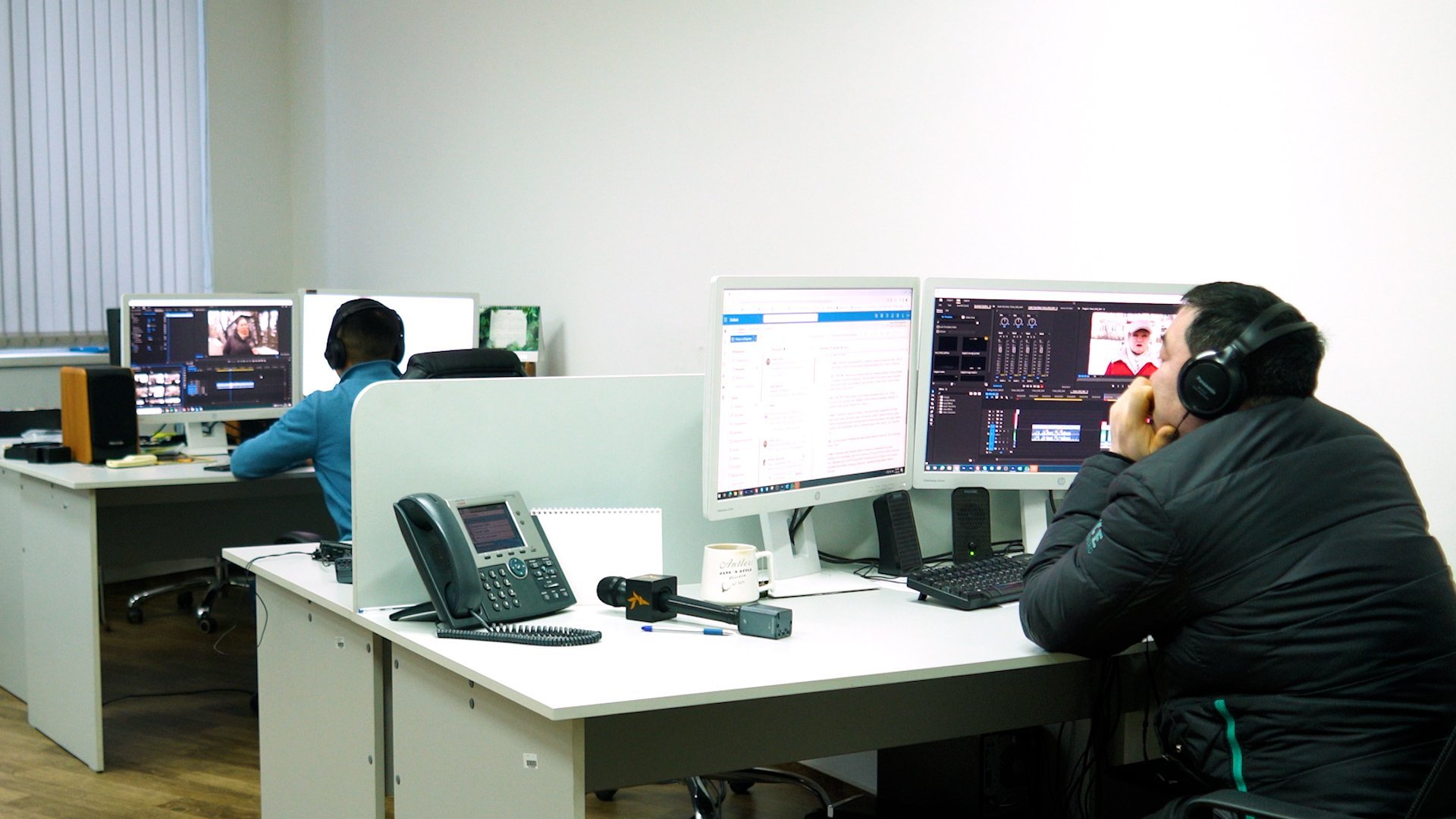
An Azattyq correspondent, Ayan Kalmurat, who was not accredited this year, associates this outcome with the clause about the "threat to national security" in the proposed bill. He wrote about this on his Instagram page.
I cannot legally work as a journalist in my country. Without accreditation, I cannot ask questions to government officials, the police, the court, or broadcast from rallies. None of the 36 journalists can enter the Majilis or take part in a press conference of official bodies. When asked to participate, some press secretaries with a grin declare that we do not have accreditation. I want to work freely in my country, in the profession that I love, for the media that I want to work in. But in order to be an independent journalist, you have to fight, he writes.
When asked if Azattyq was at risk of losing employees, Amanzhol replied that it depended on further actions by the authorities and the court's decision. Meanwhile, on 1 February 2024, Speaker of the Senate Maulen Ashimbayev commented on the situation with the accreditation of Azattyq journalists.
In Kazakhstan, we ensure freedom of speech, dear colleagues. You yourselves are participants in the process when all conditions are created for the media in the country. Over the past few years, the media have been freely writing about the situation in the country, criticizing government officials and leaders, and there are no restrictions in this regard. The necessary legal framework has been created in Kazakhstan. And in this regard, if we are talking directly about “Radio Azattyq”, about the fact that the Ministry of Foreign Affairs did not accredit some journalists of this foreign media outlet, then, according to the information of the Ministry of Foreign Affairs, such a decision was made on the basis of the fact that the editors and journalists of “Radio Azattyq” have repeatedly violated the legislation of the Republic of Kazakhstan in the field of mass media. And in particular the provisions on the activities of foreign media representatives in our country. For more details, you need to contact the Ministry of Foreign Affairs. But in general, I would like to say that in Kazakhstan we ensure freedom of speech. You have the opportunity to freely ask questions to the speaker and all deputies of the Senate and Majilis. We show by our example that conditions are being created for the activities of the media in Kazakhstan, Ashimbayev said
Majilis deputy, Nikita Shatalov, also commented on the amendments to the bill “On Mass Media”.
Partly anticipating questions from journalists, I would like to comment on the amendments to the bill “On Mass Media” that I and deputy Bakkozhaev submitted. I see a lot of misinformation: for example, they say that we want to ban the activities of foreign publications that do not have accreditation. The nuance is that these norms and competencies of the Ministry of Foreign Affairs are already provided for in the accreditation rules, that is, in the by-laws, and we are raising them to the level of law. The only new regulation concerns threats to national security, which may be grounds for denial of accreditation. There is also a misunderstanding here; the main argument of opponents of this norm is that the basis is too vague. However, we relied on the Law “On National Security,” where this concept has a clear definition and several important clarifications both in the conceptual apparatus and in the text of the law. This regulation will only work in relation to those media that will call for violation of the constitutional order, riots, and other forms of threat to national security. But there is another side to the matter: both the current Law “On Mass Media” and the draft law “On Mass Media” being developed provide for the right of a foreign media outlet to appeal a decision to refuse accreditation in court. Therefore, it cannot be unequivocally stated that the Ministry of Foreign Affairs of the Republic of Kazakhstan will have the last word in deciding which media will operate in Kazakhstan and which will not. Our amendments should play, first of all, a preventative role. We set clear boundaries about what can be done and what cannot be done. This norm, if adopted during the consideration of the bill at all stages, will work for all foreign publications and journalists without exception. We protect the Kazakhstani information field from lies, provocation, and manipulation.
Who Finances Freedom?
Radio Free Europe / Radio Liberty is an independent international organization that broadcasts in 27 languages in Central Asia, Eastern Europe, and the Middle East.
RFE/RL funding is provided through grants from the US Congress. According to Kasym Amanzhol, this year's annual grant for 23 regional bureaus amounted to 130-140 million dollars.
Repeat Scenario?
It is noteworthy that the authorities of several countries have exerted similar pressure on the regional editions over the past few years.
In 2022, the Jogorku Kenesh, Parliament of Kyrgyzstan, suspended the accreditation of journalists of the Kyrgyz edition of Azattyq — Azattyk Media. Later in July, the Ministry of Culture of Kyrgyzstan attempted to shutter the media in court. Still, the Bishkek City Court approved a settlement agreement between Azattyk Media and the ministry.
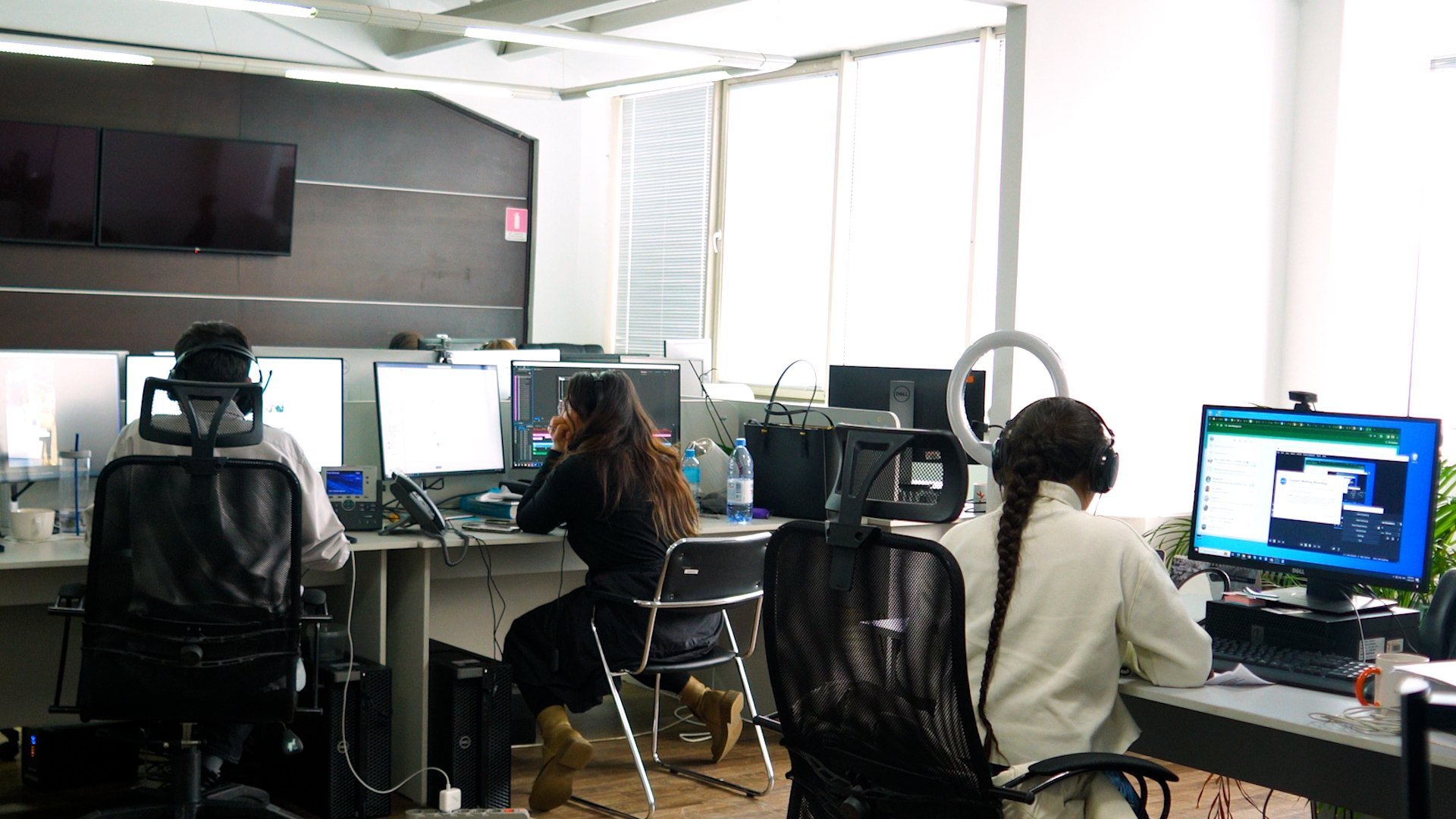
The website of the Uzbek Azattyk service, Radio Ozodlik, has remained blocked in Uzbekistan for many years. In 2021, a court in Belarus recognized Radio Liberty's social networks as extremist.
"What unites the countries where Azattyk editions were closed or close to closure is one thing — the authorities of these countries were not interested in spreading truthful and independent information. At the same time, each case is different: in some countries, a dispute arose over some specific material, while in the case of the Kazakh edition, there is no such thing. I assume that the authorities do not like the principles and philosophy of the publication," says Kasym Amanzhol.

After the news about the refusal to grant accreditation to Azattyq's journalists, Kaznet users started a flash mob to show support. Political scientists, journalists, civil society activists, and ordinary people have published posts with the hashtag #MenAzattyqpyn (#IamAzattyq).
Civil activist Mukhtar Tayzhan writes on Facebook that you can agree or disagree with Azattyq journalists, but the main principle is freedom of speech.
If Azattyq is closed, then there will be less openness in the country, Taizhan writes.
Journalist and activist Inga Imanbay calls the measures taken by the authorities against the independent media an attack on freedom of speech and free and independent journalism.
Azattyq is a model of freedom of speech in the country. If we cannot protect them, all our journalistic activities will be meaningless, Imanbay writes.
Kasym Amanzhol says that Radio Azattyq will continue to operate within the law. The media, as a legal entity, has accreditation, along with other journalists.
Original Author: Silam Aqbota
DISCLAIMER: This is a translated piece. The text has been modified, the content is the same. Please refer to the original piece in Russian for accuracy. The article has been updated to reflect the current situation as of 01/02/2024, the original article was posted on 31/01/2024.
Latest news
- Thermal Power Plant Projects: Kazakhstan Looking for Alternatives for Russian Contractors
- Shymkent Theater Officials Accused of Embezzling Over 136 Million Tenge
- Ashgabat Responds to Media Report on Internet Access
- Rare Glimpse: Red-Listed Lynx and Secretive Badgers Filmed in the Wild
- Kairat Forward Becomes Youngest Kazakhstani to Score in Champions League
- Orda's Editor-in-Chief Targeted in Questionable Ownership Maneuver
- Businessman Tried to "Push Through" Astana Boiler House Project with a Bribe
- Foreigners Coming to Uzbekistan for Work Will Be Required to Take an HIV Test
- Toqayev Appoints New Director to Reorganized Anti-Corruption Body
- Former Employees of Key Witness Testify in Sarbasov Trial
- Kazakhstan Plans to Launch Direct Flights to New York, Tokyo, and Singapore
- Kazakhstan Expects Minimal Impact from U.S. Tariffs, Trade Ministry Says
- Hemp to Be Cultivated in Northern Kazakhstan for Industrial Use
- Tajikistan and Kyrgyzstan Sign Series of Cooperation Agreements After High-Level Talks
- Vostokmashzavod Disputes Railcar Downtime Charges from KTZ-Freight
- Alik Aidarbayev Appointed General Director of Kalamkas-Khazar Operating
- Trump’s Tariff: Experts Weigh In on Kazakhstan’s Possible Response
- Kazakhstan Meat Cleared for European Market
- Journalist Lukpan Akhmedyarov Reports New Wave of Pressure
- Modernization of Syrym Checkpoint Promises Smoother Border Crossings, Orda.kz Talked with Drivers about Current Situation

